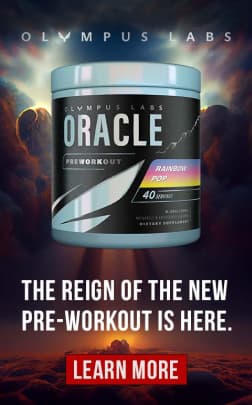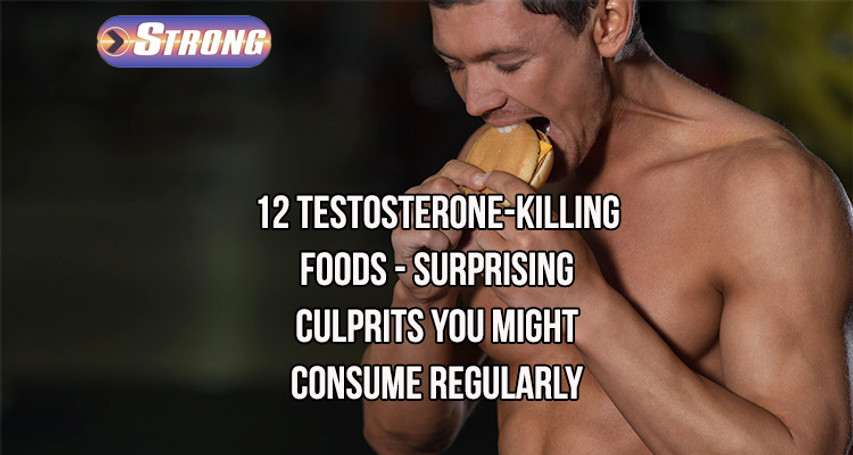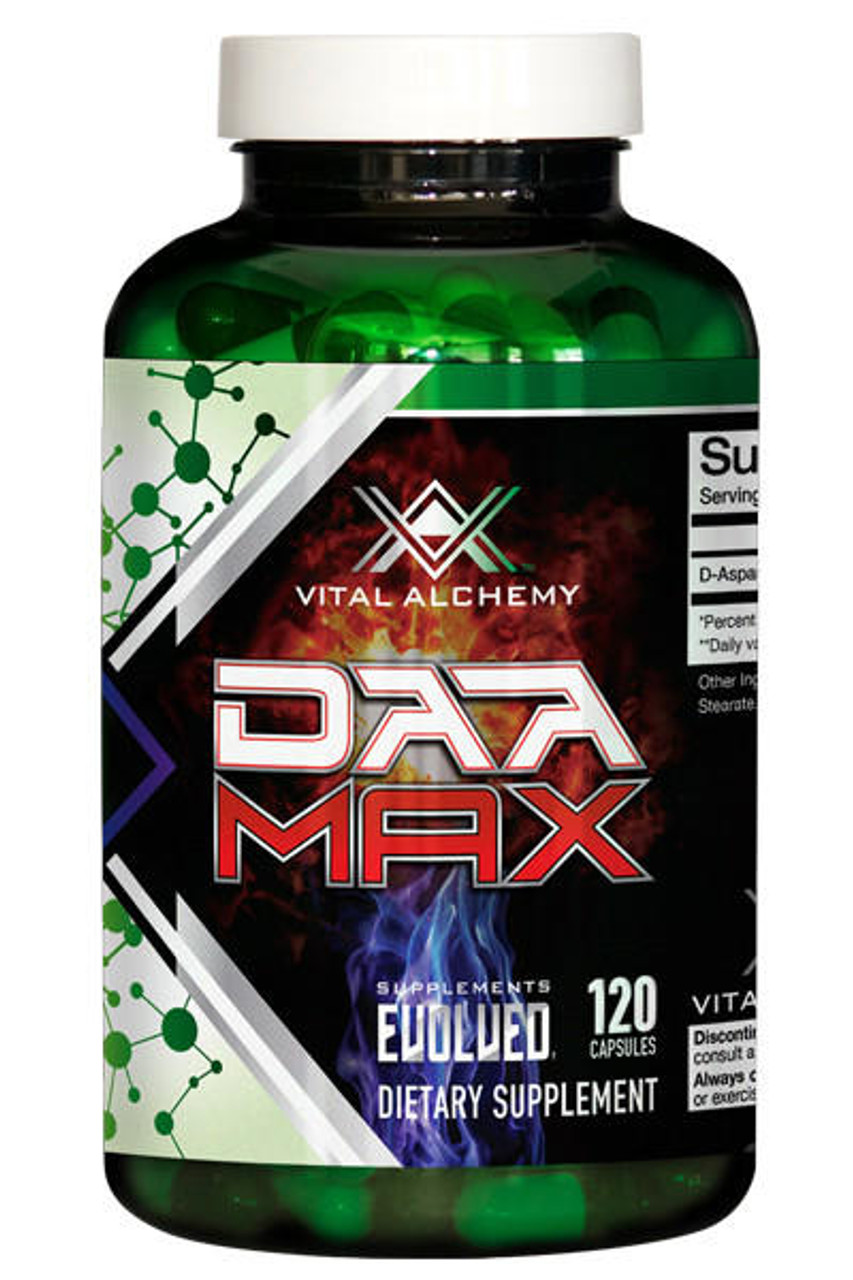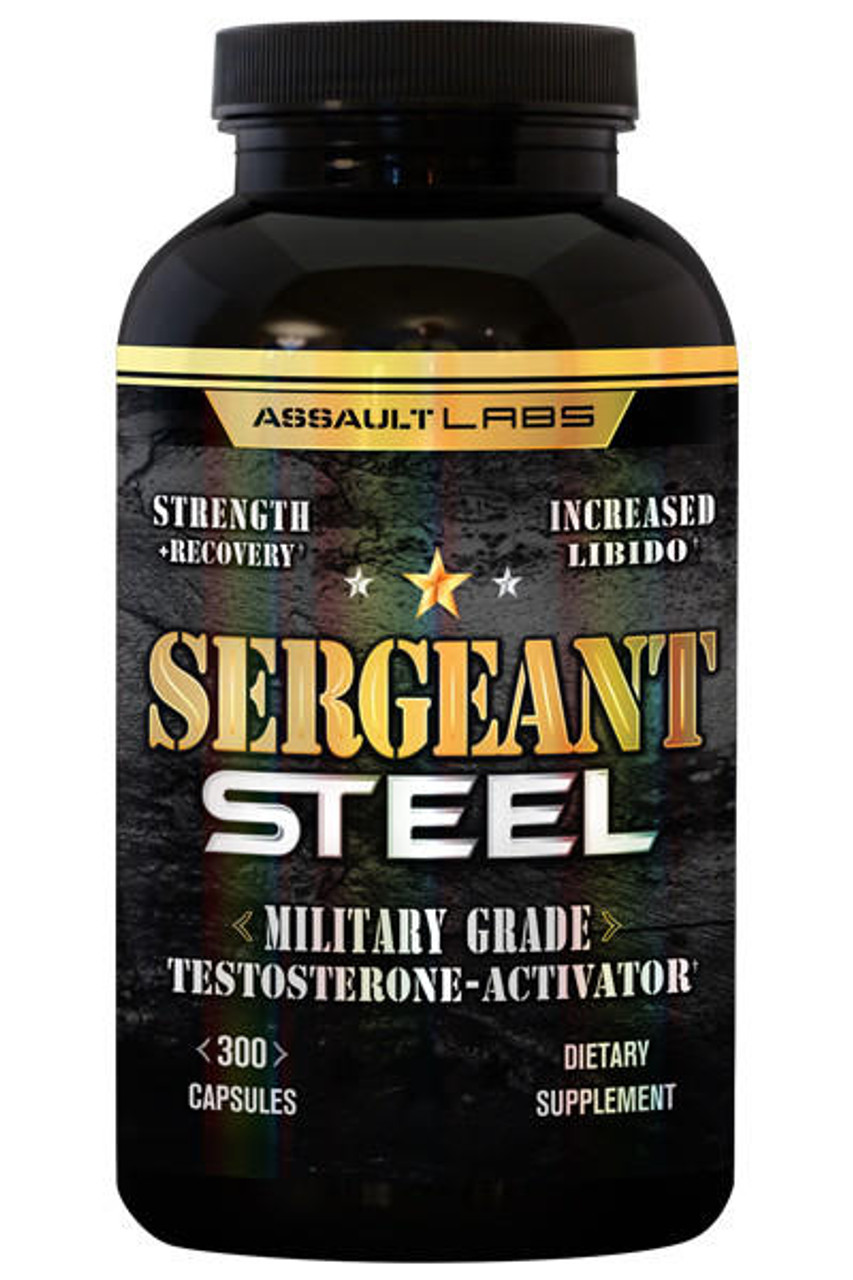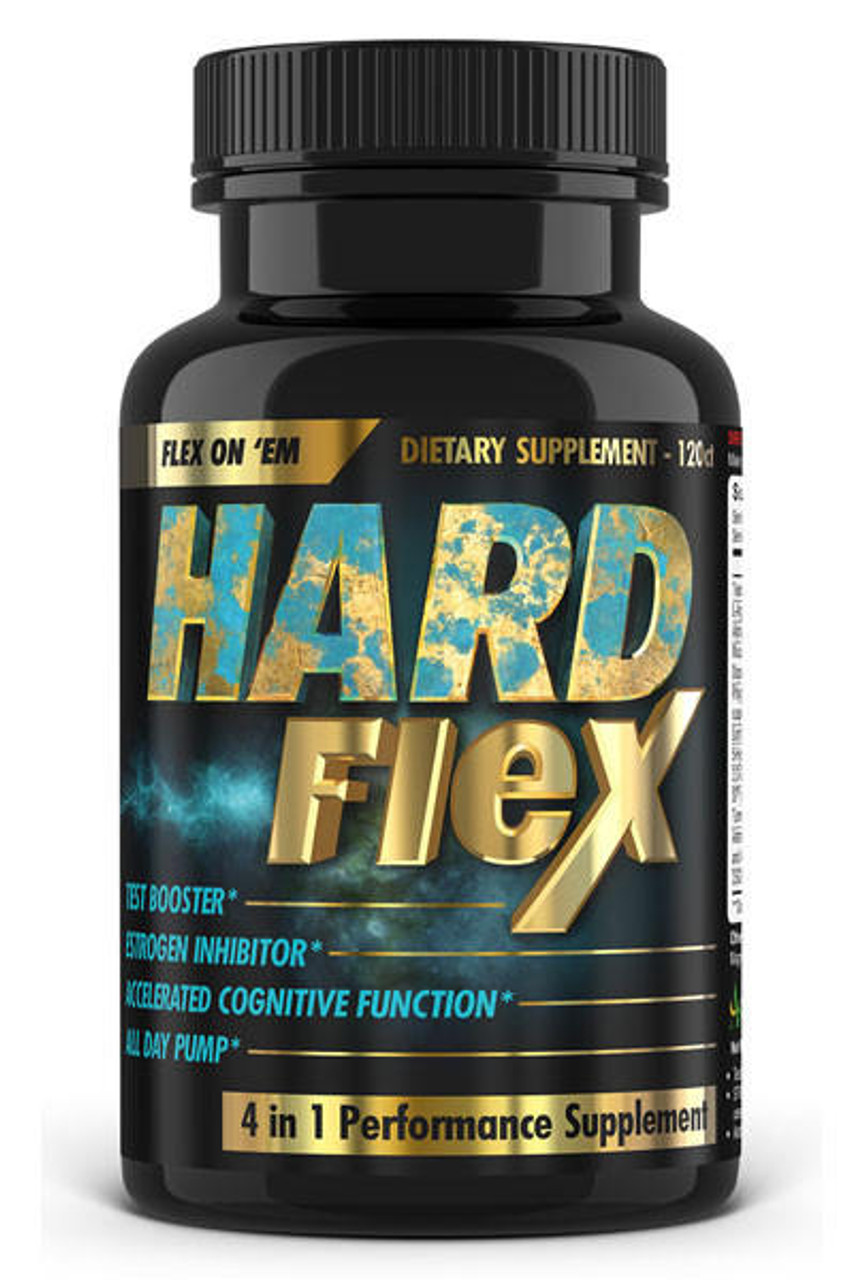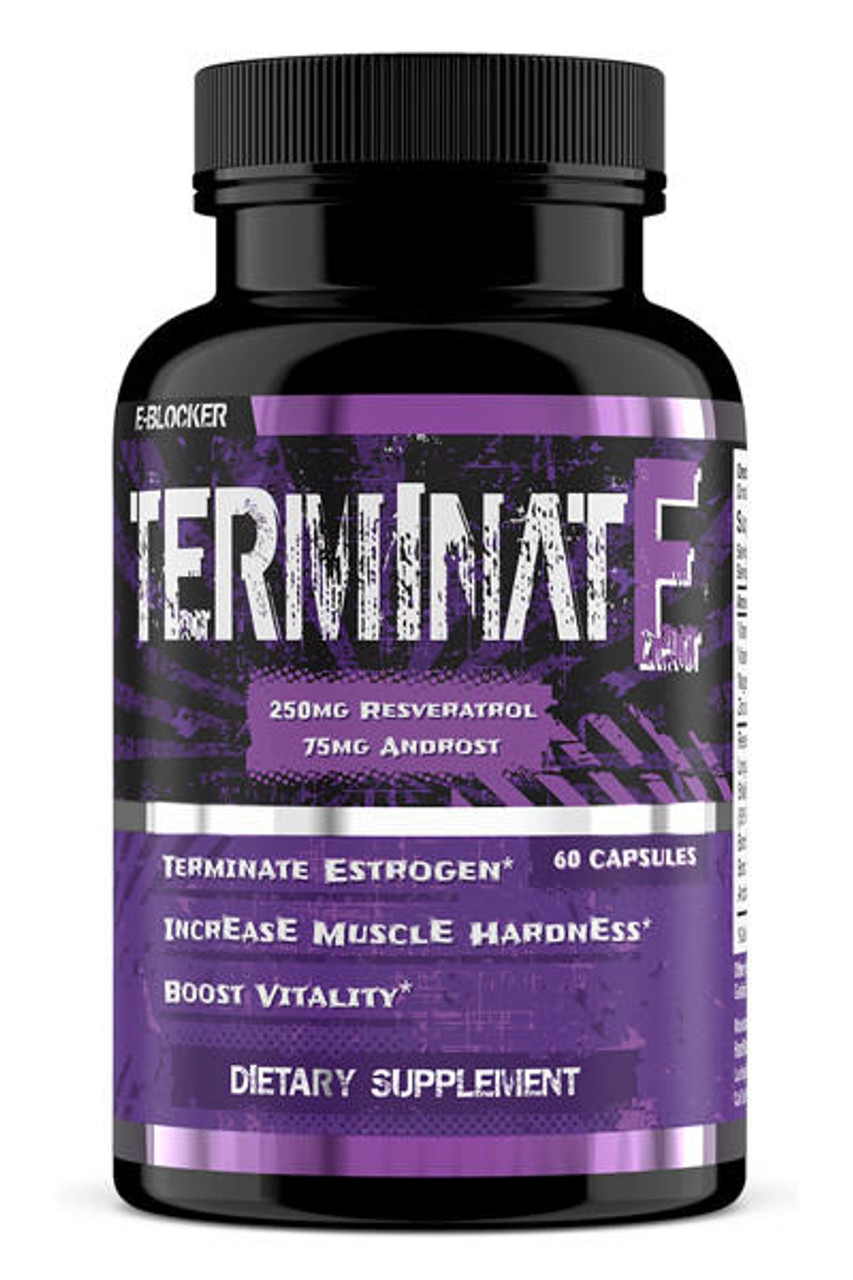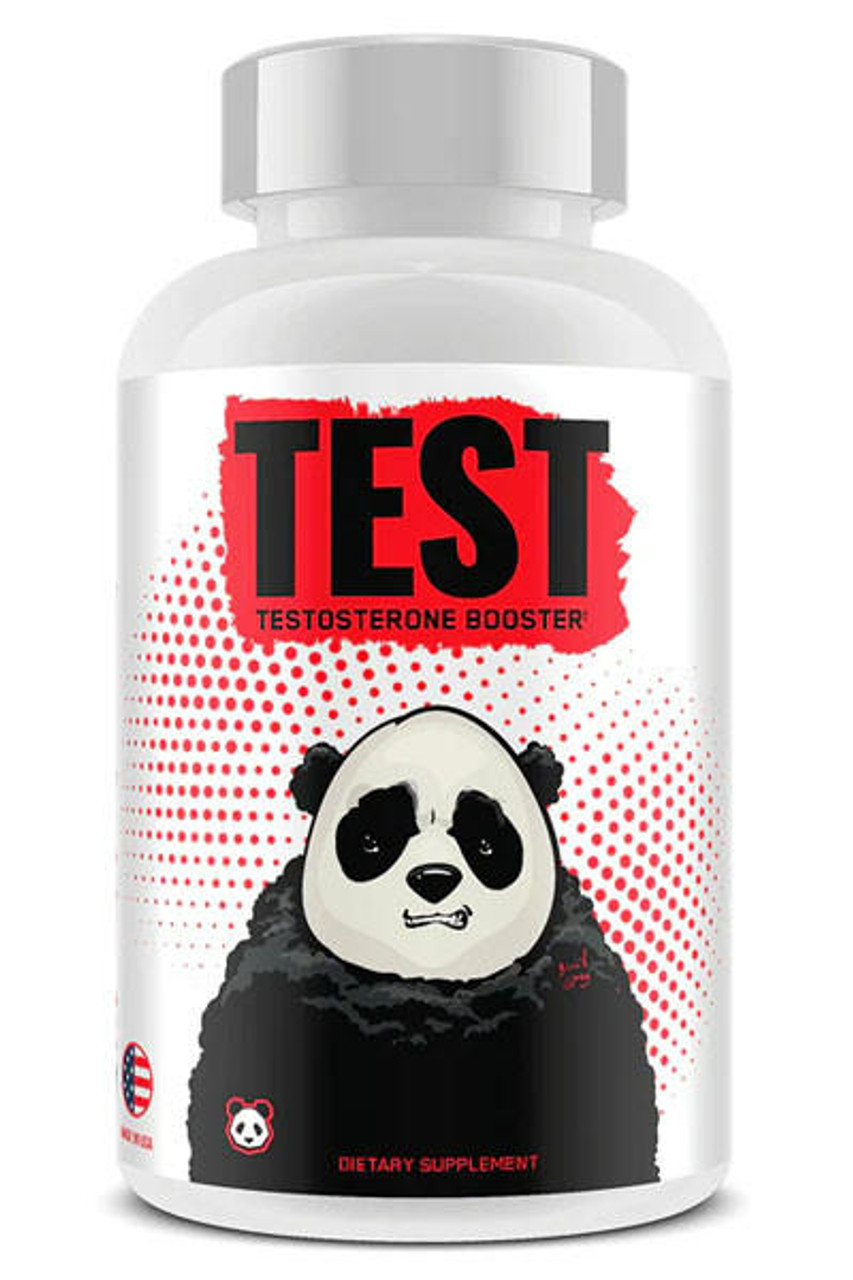12 Testosterone-Killing Foods: Surprising Culprits You Might Consume Regularly
Posted by Leonard Shemtob on May 06, 2024
Have you ever wondered why you might be feeling low on energy or lacking that drive you once had? The answer could be lurking in your everyday diet.
In this article, we'll delve into the world of testosterone-killing foods—surprising culprits that might be hiding in your meals.
Testosterone, the key male hormone, plays a vital role in your physical and mental well-being. It influences muscle mass, bone density, sex drive, mood, and even cognitive function.
Maintaining healthy testosterone levels is crucial throughout your life, but did you know your diet can significantly impact them?
This article dives deeper into the surprising truth about certain everyday foods that might be affecting your testosterone levels. We'll explore which foods to be mindful of and what delicious alternatives you can incorporate to support optimal testosterone production and keep you feeling your best.
[Related Article] Does Sleeping Naked Increase Testosterone?: Truth Unveiled
Short Summary
- Importance of Testosterone: Testosterone is a super important male hormone that keeps you strong, energetic, and mentally sharp.
- Discover the unexpected: Learn about common foods that could be quietly lowering your testosterone levels.
- Understand the impact: Explore how these foods affect your energy, mood, and overall well-being.
- Empower yourself: Find out how simple changes in your daily diet can lead to increased vitality and vitality.
- Boost your T naturally: Explore DAA Max, a natural supplement designed to support healthy testosterone production.
What is Testosterone?
Testosterone is a crucial male sex hormone. It's often referred to as the "male hormone," although it's also present in females, albeit in smaller amounts. It is responsible for various functions, including the development of male reproductive tissues like the testes and prostate.
Additionally, it influences traits such as muscle mass, bone density, and body hair growth. Beyond physical characteristics, testosterone also affects mood, energy levels, and overall well-being. In essence, testosterone is crucial for maintaining male health and vitality.
What is Low Testosterone?
Low testosterone, also known as hypogonadism, is a condition where the body does not produce enough of this vital hormone. This can lead to a variety of symptoms, including decreased sex drive, erectile dysfunction, fatigue, mood changes, and reduced muscle mass and bone density.
Various factors, such as aging, certain medical conditions, injury, or lifestyle factors like stress, obesity, and poor diet can cause low testosterone. If left untreated, low testosterone can have significant negative impacts on a man's physical and mental health, making it important to address the issue with the guidance of a healthcare professional.
Symptoms of Low Testosterone
When a man's testosterone levels drop, it can lead to a variety of noticeable symptoms. Some of the most common signs of low testosterone include:
- Reduced sex drive: A decrease in libido or interest in sexual activity is one of the hallmark symptoms of low testosterone.
- Fatigue and Decreased Energy: Low testosterone levels can lead to feelings of fatigue and a noticeable decrease in energy levels. You might find yourself feeling tired and lethargic, even after getting adequate rest.
- Loss of Muscle Mass and Strength: Feeling a decrease in muscle mass and strength, or struggling to build muscle despite exercise, could be a sign of low testosterone.
- Increased body fat: As testosterone levels drop, the body may start to accumulate more fat, particularly around the abdomen.
- Mood Changes: Low testosterone can also impact mood and emotional well-being. Men may experience symptoms such as irritability, depression, or a general sense of low mood.
- Loss of Bone Density: Testosterone is important for maintaining bone density and strength. Low testosterone levels can increase the risk of osteoporosis and bone fractures, particularly in older men.
- Sleep Disruptions: Difficulty falling asleep, staying asleep, or changes in your usual sleep patterns could be another indicator.
- Hair Loss: Testosterone contributes to hair growth, and a decrease in its levels can result in thinning hair or baldness.
- Cognitive Changes: Research indicates that low testosterone levels might affect cognitive function, potentially influencing memory, concentration, and problem-solving skills. You may find it harder to focus or experience lapses in memory.
Can Food Really Lower Testosterone?
The food we eat can have a significant impact on our hormonal health, including testosterone. While there's no single food that directly lowers testosterone levels, certain dietary choices may indirectly affect hormone production and balance.
For instance, some research indicates that using significant quantities of soy-based products might reduce testosterone levels. Similarly, High levels of processed foods, sugary snacks, and unhealthy fats have been linked to obesity and conditions like metabolic syndrome, which can contribute to hormonal imbalances, including low testosterone.
Conversely, adopting a diet rich in nutrient-dense foods such as fruits, vegetables, lean proteins, and healthy fats may support overall health and help maintain hormone balance.
While food alone may not be the sole cause of low testosterone, making smart dietary choices can play a role in maintaining optimal hormone levels and overall well-being.
However, it's important to note that the existing research on the direct effects of specific foods on testosterone levels in humans is still limited. Many of the studies cited have been conducted on animals or have had small sample sizes.
What Foods Kill Testosterone?
While there's no single food that directly lowers testosterone levels, certain dietary choices may negatively impact hormone production and balance.
Here are some common types of foods that are often associated with lower testosterone levels:
Soy-Based Products
Soy-based foods like tofu, edamame, and soy protein isolates contain phytoestrogens - plant-based compounds that are structurally similar to the human hormone estrogen.
Some research has suggested that high consumption of these phytoestrogens may interfere with testosterone production, but the evidence is mixed.
Processed Food
Highly processed foods are often loaded with unhealthy fats, trans fats, and artificial ingredients. These can disrupt hormone balance and potentially decrease testosterone levels.
Trans Fats
Food items containing trans fats, like fried foods, baked goods, and margarine, are associated with multiple health concerns, including cardiovascular problems and insulin resistance. Overconsumption of trans fats can also interfere with hormone production and metabolism, potentially resulting in decreased testosterone levels.
High Sugar Foods
Diets rich in sugar can prompt insulin resistance, a state where the body's cells become less receptive to insulin. This resistance has been associated with elevated cortisol levels, and decreased testosterone levels, and can promote weight gain and metabolic concerns.
Alcohol
Alcohol can significantly affect testosterone levels, and the scientific explanation behind this is concerning.
Studies indicate that alcohol consumption disrupts the normal function of crucial organs like the hypothalamus, pituitary gland, and testes, collectively known as the hormonal control center. When these organs fail to produce hormones effectively, testosterone levels plummet.
Vegetable Oils
Many common vegetable oils, like soybean, corn, and safflower oils, are high in polyunsaturated fatty acids (PUFAs). While polyunsaturated fats can offer health benefits, excessive intake of these fats has been linked to decreased testosterone levels.
Dairy
Numerous studies suggest that dairy products may lower testosterone levels. The milk primarily sourced from pregnant cows, commonly sold commercially, contains high levels of estrogens and progesterone.
These hormones can negatively affect testosterone by suppressing the release of gonadotropin-releasing hormone (GnRH), crucial for the production of follicle-stimulating hormone (FSH) and Luteinizing hormone (LH). Without the release of these hormones, the testes are unable to synthesize testosterone.
Flaxseeds
Flaxseeds are renowned for their rich nutritional profile, featuring a balance of omega-3 and omega-6 fatty acids, fiber, and essential vitamins and minerals.
Despite its array of health advantages, some studies suggest a potential link between flaxseed intake and reduced testosterone levels, especially among certain groups.
Certain Nuts and Seeds
Foods like flaxseeds and some nuts, such as almonds, contain compounds that may bind to testosterone, reducing the amount of "free" or bioavailable testosterone in the body.
Baked Goods
Numerous baked treats like pastries, cakes, and cookies are typically packed with sugars and unhealthy fats. Consumption of these items can result in weight gain and insulin resistance, both of which are associated with reduced testosterone levels.
Mint
Certain varieties of mint, such as spearmint and peppermint, contain compounds that have been shown to reduce testosterone levels in animal studies.
Licorice
Licorice root contains compounds that can inhibit testosterone production and promote the conversion of testosterone into estrogen.
Other Factors That Impact Testosterone
While diet plays a significant role, testosterone levels can also be influenced by other factors in your lifestyle.
Here are some additional areas to consider:
- Obesity
- Lack of Exercise
- Aging
- Chronic Stress
- Lack of Sleep
- Certain Medications
- Environmental Factors
- Hormonal Imbalances
Foods That Can Boost Testosterone
While certain foods may have the potential to negatively impact testosterone levels, there are also many nutritious options that can help support healthy testosterone production.
Here are some examples of foods that may promote testosterone production:
Lean Protein Sources: Foods rich in high-quality protein, such as lean meats like chicken, turkey, and fish, provide essential amino acids needed for testosterone synthesis. Include these protein sources in your meals to support muscle growth and hormone production.
Fatty Fish Feast: Fatty fish such as tuna, salmon, and mackerel are rich in omega-3 fatty acids, which have been associated with increased testosterone production.
Leafy Greens: Don't underestimate the power of dark, leafy greens like spinach and kale! They're rich in magnesium, a mineral that plays a role in testosterone production.
Eggs: These are a nutrient powerhouse, packed with vitamins, protein, and minerals, including vitamin D. Vitamin D is essential for testosterone production, and eggs are one of the few natural food sources of this essential nutrient.
Berries, Cherries, and Pomegranates: These antioxidant-rich fruits may help protect testosterone-producing cells from damage and potentially increase testosterone levels.
Garlic: Garlic contains compounds that may stimulate testosterone production and support overall health. Adding garlic to your meals can provide flavor while potentially boosting testosterone levels.
Shellfish: Oysters and other shellfish are perfect sources of zinc, a mineral crucial for maintaining healthy testosterone levels.
Beyond Food: Natural Supplements to Support Testosterone
1- DAA Max by Vital Alchemy
DAA Max is a high-quality D-Aspartic Acid supplement available in capsule form. D-Aspartic acid is a natural compound that has been researched for its potential to support testosterone levels in the body.
D-aspartic acid may be beneficial when used alongside post-cycle therapy (PCT) to help restore natural testosterone levels. Additionally, it could be incorporated into a PCT regimen to support testosterone levels and maintain muscle gains.
Key Benefits
- Supports healthy testosterone levels naturally.
- Stimulates the release of testosterone into the bloodstream.
- Enhances Leutinizing Hormone production, a key regulator of testosterone levels.
- Boosts nitric oxide production, aiding in post-workout recovery.
- Increased testosterone levels may lead to benefits such as enhanced energy, strength, muscle growth, fat loss, and libido.
Customer Reviews
 Great product
Great product
"I love DAA Max had to order 2more bottles I highly recommend this"
-Eric
 Overall DAA max experience is positive
Overall DAA max experience is positive
"After using this supplement many times, I can say that it definitely works as intended and as the science suggests. It has been effective, reliable and safe every time and I would absolutely recommend it."
-Reelfit
 DAA MAX
DAA MAX
"You can tell this stuff is legit. I've tried other DAA but this stuff right here works the best. Libido goes uo within a week."
-Angel
2- Sergeant Steel by Assault Labs
Introducing Sergeant Steel, a testosterone booster designed to support hormone health. Formulated with a blend of 16 carefully selected ingredients, Sergeant Steel aims to naturally boost testosterone levels.
Sergeant Steel is designed to enhance muscle strength, endurance, and mass, while also supporting libido and overall well-being.
Key Benefits
- May support testosterone levels
- May aid in increasing nitric oxide levels
- May contribute to enhancing overall mood
- May assist in promoting muscle mass
- May aid in enhancing recovery
- May assist in improving the strength
- May help enhance libido
Key Ingredients
- D-Aspartic Acid
- KSM-66® Ashwagandha Root Extract
- Mucuna Pruriens
- Nettle Extract
- Fenugreek
- Shilajit
- LJ100
- Dehydroabietic Acid (DHAA)
- Tribulus Extract
- Maca Extract
- Boron
Customer Reviews
 Great supplement
Great supplement
"This has definitely put me back on a good track. I feel more energy, more hype to hit those weights and more efficient exercise. I am pushing through a full body workout with 40 lb kettlebells which is nice. Recovery is fantastic as well. Definitely going to stack this."
-Jreyes
 Strong Test Booster!
Strong Test Booster!
"Sergeant Steel is pretty strong! I have used Apex Male in the past and Sergeant Steel seems to out perform from a motivation and performance standpoint."
-Tracy G.
 Works very well!!!
Works very well!!!
"Works good and you tell the difference when your on or off. It gives you everything your asking for that test booster supplement."
-Blackdragon
3- Hard Flex by Hard Rock Supplements
With Hard Flex, you receive a combination of four products in one, each containing multiple clinically studied ingredients.
- Test Booster
- Estrogen Inhibitor
- Pump & Energy Builder
- Mental & Cognitive Enhancer
These ingredients work together to enhance your test levels and strength. This supplement has also been shown to increase nitric oxide levels.
Key Benefits
- Potentially increases total testosterone
- May aid in reducing body fat
- Potentially enhances strength
- May improve body composition
- May improve cognitive function
- Potentially increases vascularity
- May contribute to muscle hardness
- Potentially enhances pumps
- May improve libido
- Potentially supports gut health
Key Ingredients
- S7
- TestoSurge®
- Lion's Mane Mushroom Extract
- L-Arginine Alpha-Ketoglutarate (AAKG)
- AstraGin®
- DIM
- Resveratrol
- Mucuna Pruriens
- Alpha GPC
- 3,5- Diiodo-L-Thyronine
- 5-Hydroxy-7-Methoxyflavone
Customer Reviews
 Exciting
Exciting
"Hard rock has been consistently delivering for me. I have tried almost all their supplements and they all hit! The formula and doseges on this one looks real nice. Ordering two bottles now and will update once I get em going."
-Lee G.
 Hard flex review
Hard flex review
"So far very happy using th seems to be working great"
-Al P.
 Big Wood
Big Wood
"I can feel the effects, if you know what I mean! Every morning and longer sessions plus more focus and a better feeling overall. This is an everyday thing for me now - highly recommened!"
-Doug
4- Terminate by Hard Rock Supplements
Hard Rock Supplements introduces Terminate, designed to support muscle hardness, estrogen reduction, prolactin reduction, and body fat reduction while enhancing libido. Terminate utilizes a unique formula comprising effective ingredients at optimal dosages to deliver superior estrogen-blocking benefits.
Whether used during a cycle to regulate estrogen levels or as a standalone estrogen blocker and muscle hardener, Terminate offers comprehensive support for your body's goals.
Key Benefits
- Supports increased muscle hardness
- Assists in reducing estrogen levels
- Aids in boosting libido
- Supports testosterone level enhancement
- Contributes to increased strength
- Assists in improving vascularity
- Helps in reducing body fat
- Contributes to improved mood and sense of well-being
Key Ingredients
- Trans-Resveratrol
- Androst
- Boron
- Boron Glycinate
- Zinc
- LongJack
- Shilajit
Customer Reviews
 Estrogen gone!
Estrogen gone!
"Pretty good value for money and actually reduced any estrogen quickly. Would recomend as AI or PCT"
-JohnyBigArms
 Good Stuff
Good Stuff
"If you use this, you won't have to go bra shopping. It works!"
-Derrick
 Terminate
Terminate
"This stuff is powerfully. Really tightens me up increase libido increase test and removes estrogen"
-Josh C.
5- Test by Panda Supplements
Introducing Panda Test by Panda Supplements, a natural muscle-building supplement designed to support those seeking enhanced muscle development, strength, energy levels, and drive.
Panda Test is formulated with clinically dosed ingredients to potentially elevate free testosterone levels while managing stress hormones. Experience the potential benefits of increased strength during workouts, sustained energy throughout the day, and heightened confidence in physical and sexual performance.
Key Benefits
- It boosts your energy levels.
- It improves your vitality.
- It enhances your testosterone levels.
- It improves your strength.
- It supports your stamina.
- It promotes your overall performance.
Key Ingredients
- Turkesterone
- Tribulus Terrestris Extract
- Tongkat Ali
- Ashwagandha
- Zinc
- Vitamin B-9
- DIM (Diindolylmethane)
FAQs: Testosterone Killing Foods
Q: Can food really affect my testosterone levels?
A: Yes, your diet can play some role in testosterone. While a healthy diet won't single-handedly transform you, certain foods may have a subtle influence on this important hormone.
Q: What are some common foods that kill testosterone?
A: Common testosterone-killing foods include processed foods high in unhealthy fats and sugars, soy-based products, alcohol, trans fats, and mint.
Q: What are some foods that can help boost testosterone?
A: Foods like fatty fish, dark leafy greens, avocados, eggs, and certain fruits like berries and pomegranates are known for their potential to support healthy testosterone levels.
Q: How can one naturally increase testosterone levels?
A: Natural methods to enhance testosterone levels include regular exercise, stress management techniques, adequate sleep, maintaining a healthy weight, and using a balanced diet rich in essential nutrients.
Q: How Are Testosterone Levels Checked?
A: Testosterone levels are typically measured by analyzing a blood sample for levels of testosterone and sex hormone-binding globulin (SHBG). The free androgen index (FAI) is used to determine the volume of bioavailable testosterone in the blood, which is calculated by differentiating between bioavailable testosterone and SHBG.
To check testosterone levels, a small blood sample is usually taken, and the results are typically available within 2-5 days.
Q: Does coffee lower testosterone?
A: No, it doesn't. Although some studies suggest that caffeine intake may lead to various adverse effects such as heartburn, digestive issues, increased blood pressure, headaches, and anxiety, there is no evidence to suggest that it lowers testosterone levels.
Q: Can testosterone levels naturally decline with age?
A: Yes, testosterone levels typically decrease with age, starting around the age of 30.
Q: Are there any medical conditions that can cause low testosterone levels?
A: Yes, certain medical conditions such as hypogonadism, obesity, diabetes, metabolic syndrome, and hormonal disorders can lead to low testosterone levels.
Q: Can women have low testosterone levels?
A: Yes, although testosterone is often referred to as the "male hormone," it's also present in females, albeit in smaller amounts. Women can also experience symptoms of low testosterone, such as decreased libido, fatigue, and mood changes.
Conclusion
Maintaining optimal testosterone levels is essential for male health and vitality. By incorporating a balanced diet packed with nutrient-dense foods, managing lifestyle factors, and engaging in regular physical activity, men can support optimal hormone balance.
Additionally, certain supplements and natural remedies may offer further support. Remember to consult with a healthcare expert before making any significant changes to your diet or supplement routine.
By taking a proactive approach, you can experience a more energized, stronger, and healthier you.
Sources:
https://www.medicalnewstoday.com/articles/325186
https://www.healthline.com/health/testosterone-killing-foods
https://www.letsgetchecked.com/articles/foods-that-kill-testosterone
https://www.hims.com/blog/what-foods-kill-testosterone
https://getopt.com/2024/02/26/testosterone-killing-foods
https://honehealth.com/edge/nutrition/foods-that-lower-testosterone
Written and Sponsored by Leonard Shemtob
Leonard Shemtob is President of Strong Supplements. Leonard has been in the supplement space for over 20 years, specializing in fitness supplements and nutrition. Leonard appears on many podcasts, written over 100 articles about supplements and has studied nutrition, supplementation and bodybuilding.
Leonard's articles have been published in many top publications around the web. Leonard enjoys weight training, playing basketball and yoga, and also enjoys hiking. In his free time he studies and works on improving himself. For more detailed information, visit his official blog.

